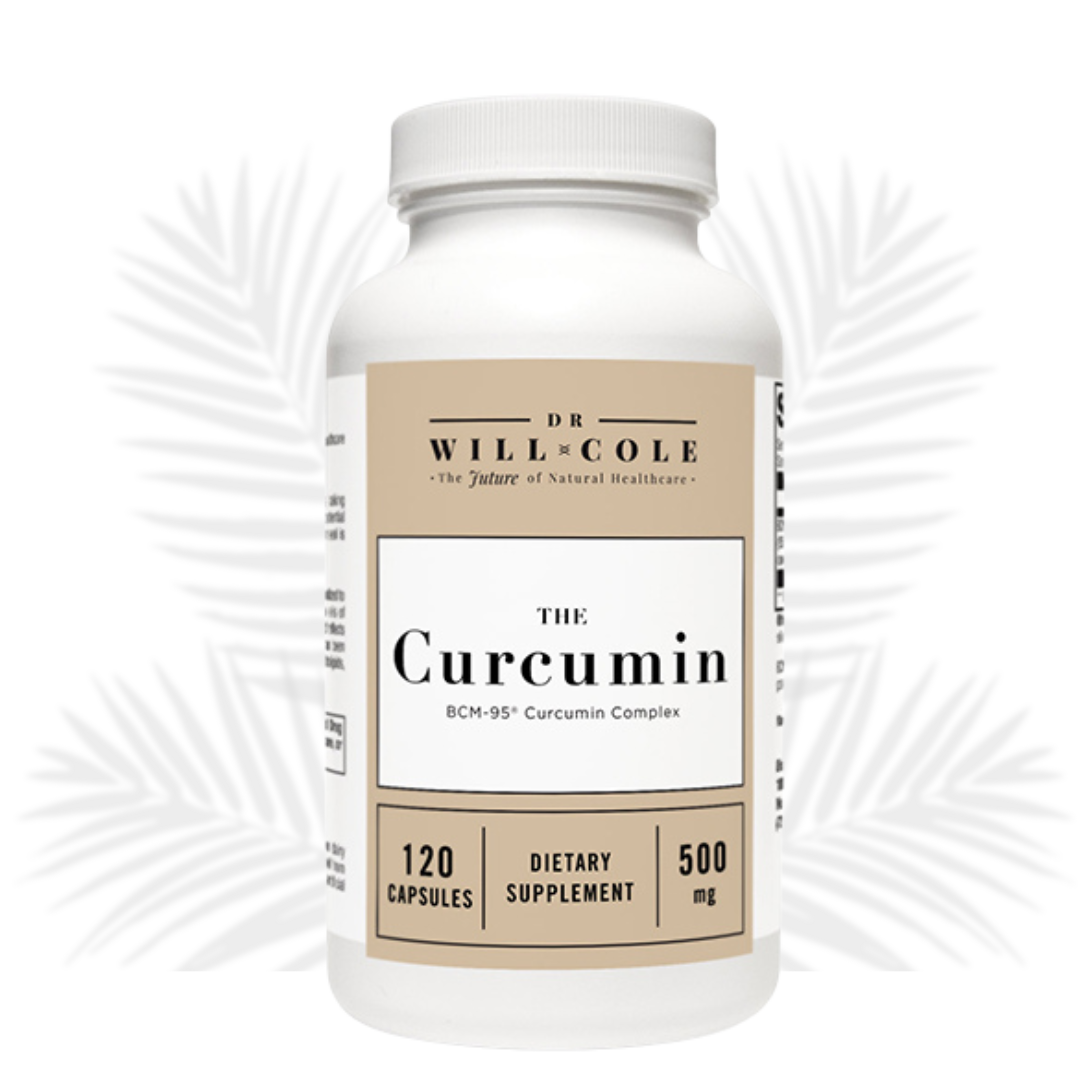10 Foods To Avoid If You Have Hashimoto’s Disease

Hashimoto’s is one of the most common thyroid problems in America, affecting 2% (1) of the total population. Since it is considered an autoimmune condition, there isn’t a cure, but there are plenty of ways that you can manage this condition naturally without the side effects of medication. As a functional medicine expert, one of my favorite, and most effective long-term strategies to put Hashimoto’s into remission is to make dietary changes.
By eliminating foods that exacerbate this condition, you can be well on your way to thriving, not just surviving, with Hashimoto’s. Why elimination first? Well, you can eat all the healthy foods you want but it won’t make a difference if you’re still loading up on dirty fuel at the same time.
ARTICLE CONTINUES BELOW
What is Hashimoto’s?
Hashimoto's disease - also known as Hashimoto's thyroiditis - is an autoimmune condition that affects your thyroid gland. Named after the physician who first described it in 1912, this condition occurs when your body's immune system mistakenly attacks your thyroid, impairing its ability to produce adequate thyroid hormones, leading to an underactive thyroid or hypothyroidism. As a result, people with Hashimoto's may experience symptoms such as fatigue, weight gain, depression, constipation, hair loss, and sensitivity to cold.
Conventional treatment often focuses on medications that only work to manage symptoms and have a long list of uncomfortable side effects. Instead, functional medicine aims to heal the root cause of Hashimoto's by addressing underlying triggers of your condition such as stress, environmental factors, and diet.
Foods to avoid with Hashimoto’s
Because Hashimoto’s is an autoimmune disease with inflammation at its core, a lot of the foods that should be avoided with Hashimoto's have to do with lowering the body’s inflammatory response. Studies have even found that the Autoimmune Protocol (AIP) Diet that eliminates most of the foods on this list can significantly improve (2) markers of inflammation in those with Hashimoto’s. With that said, these are the foods I see most often cause problems in people with Hashimoto’s and what I recommend eliminating first.
1. Gluten
There are many people who can benefit from going gluten-free, but if you have Hashimoto’s it can be one of the biggest things you can do to alleviate your symptoms. In fact, a 2023 study published in Frontiers in Endocrinology (3) found that eliminating gluten had a positive effect on inflammation and thyroid function.
This likely has to do with the fact that your immune system can oftentimes tag gluten as a “foreign invader” with antibodies for destruction. This can cause a lot of damage as your thyroid can be the one to get caught in the crosshair and get mistaken for gluten, due to a similarity in how the molecules look to your immune system.
2. Soy
Not only is soy also a cross-reactive to gluten, it also contains phytoestrogen compounds known as goitrogens that have been shown (4) to inhibit thyroid hormone synthesis by inhibiting your body’s intake of iodine - a necessary nutrient involved in the makeup of your thyroid hormones.
3. Dairy
If you have Hashimoto’s dairy products can cause inflammatory reactions for a variety of reasons, including:
- Lactose: If you are lactose intolerant you may lack the enzyme responsible for helping you digest dairy.
- Casein: This milk protein can cause a similar inflammatory reaction as gluten. If you have leaky gut syndrome, prolonged dairy exposure could result in symptoms of digestive distress and autoimmune-inflammatory symptoms like rashes or joint pain.
- Additives: Conventional dairy is pumped full of hormones and antibiotics that could potentially have a negative impact on your health and inflammation levels.
If you can handle lactose and casein but are still having problems with dairy, you may just have a problem with conventional dairy and need to make the switch to small amounts of grass-fed dairy products.
4. Cruciferous vegetables
Although filled with other nutrients vital for healthy thyroid function, vegetables like broccoli, Brussels sprouts, cabbage, and kale also contain goitrogens that, when consumed in large amounts, might interfere with thyroid function. However, it’s important to note that cooking these vegetables can help deactivate the goitrogenic compounds.
Since these vegetables are rich in other nutrients, it’s important to work with your doctor to determine if your specific health case requires eliminating them altogether or if you just have to eat them in moderation.
5. Nightshades
Nightshade vegetables and fruits like tomatoes, potatoes, eggplants, and peppers contain alkaloids compounds that can be extremely inflammatory for those with autoimmune conditions. Although more research needs to be done on nightshades and Hashimoto’s specifically, studies have found evidence that nightshades can be a potential trigger for other autoimmune conditions like Inflammatory Bowel Disease (5) and Rheumatoid arthritis. (6)
6. Iodine
While iodine is necessary to make thyroid hormones, excess amounts can actually exacerbate (7) Hashimoto’s symptoms. Until you know just how much iodine (if any) your body can handle, limit the consumption of sea vegetables and make the switch from fortified table salt to pink Himalayan sea salt.
7. Processed foods
Prepackaged and highly processed foods and meats can contribute to inflammation and perpetuate Hashimoto’s symptoms. One study (8) even found that those with Hashimoto’s disease ate a higher amount of processed meats compared to healthy individuals with normal thyroid levels.
8. Industrialized seed oils
Cooking oils like vegetable, canola, soybean, and safflower are nothing but inflammatory. These oils contain polyunsaturated fats that oxidize easily, especially when heated, making them a major source of inflammatory free radicals.
9. Sugar
There are endless studies showing that refined sugars including high-fructose corn syrup, white sugar, and brown sugar, causes inflammation in most people and increases your risk for chronic health problems like diabetes, liver disease, and you guessed it, thyroid problems like Hashimoto’s.
10. Artificial sweeteners
Now, if you thought that you could just swap out your sugar for a sugar substitute, think again. A study published in Cureus Journal of Medical Science (9) looked at a woman diagnosed with Hashimoto’s who primarily used artificial sweeteners. After removing these artificial sweeteners from her diet, the study found that her thyroid stimulating hormone and antibody levels almost immediately returned to normal, baseline levels - showing that these artificial sweeteners were directly implicated in her development of Hashimoto’s!
The Takeaway
Ultimately, the right diet that works for someone else won’t always work for you. That’s why I always recommend working with a qualified functional medicine practitioner who can run the appropriate labs to uncover what exactly is going on beneath the surface so they can come up with the right dietary plan for you. If you are struggling with Hashimoto’s or another inflammatory autoimmune condition, schedule a telehealth consultation today to learn how we can help you with functional medicine.
As one of the first functional medicine telehealth clinics in the world, we provide webcam health consultations for people around the globe.
Photo: unsplash.com
Read Next: Hashimoto’s Flare-Up Symptoms, Causes, and Treatment Options
Start Your Health Journey Today
FUNCTIONAL MEDICINE CONSULTATIONS FOR PEOPLE AROUND THE WORLD
References:
- Medline Plus "Hashimoto's disease" Accessed December 2023. https://medlineplus.gov/genetics/condition/hashimotos-disease/
- Abbott, Robert D et al. “Efficacy of the Autoimmune Protocol Diet as Part of a Multi-disciplinary, Supported Lifestyle Intervention for Hashimoto's Thyroiditis.” Cureus vol. 11,4 e4556. 27 Apr. 2019, doi:10.7759/cureus.4556
- Piticchio, Tommaso et al. “Effect of gluten-free diet on autoimmune thyroiditis progression in patients with no symptoms or histology of celiac disease: a meta-analysis.” Frontiers in endocrinology vol. 14 1200372. 24 Jul. 2023, doi:10.3389/fendo.2023.1200372
- Babiker, Amir et al. “The role of micronutrients in thyroid dysfunction.” Sudanese journal of paediatrics vol. 20,1 (2020): 13-19. doi:10.24911/SJP.106-1587138942
- Kuang, Rebecca et al. “Nightshade Vegetables: A Dietary Trigger for Worsening Inflammatory Bowel Disease and Irritable Bowel Syndrome?.” Digestive diseases and sciences vol. 68,7 (2023): 2853-2860. doi:10.1007/s10620-023-07955-9
- Edefonti, Valeria et al. “A Posteriori Dietary Patterns and Rheumatoid Arthritis Disease Activity: A Beneficial Role of Vegetable and Animal Unsaturated Fatty Acids.” Nutrients vol. 12,12 3856. 17 Dec. 2020, doi:10.3390/nu12123856
- Hu, Shiqian, and Margaret P Rayman. “Multiple Nutritional Factors and the Risk of Hashimoto's Thyroiditis.” Thyroid : official journal of the American Thyroid Association vol. 27,5 (2017): 597-610. doi:10.1089/thy.2016.0635
- Kaličanin, Dean et al. “Differences in food consumption between patients with Hashimoto's thyroiditis and healthy individuals.” Scientific reports vol. 10,1 10670. 30 Jun. 2020, doi:10.1038/s41598-020-67719-7
- Sachmechi, Issac et al. “Autoimmune Thyroiditis with Hypothyroidism Induced by Sugar Substitutes.” Cureus vol. 10,9 e3268. 7 Sep. 2018, doi:10.7759/cureus.3268
View More At Our Store
Purchase personally curated supplements
and Dr. Will Cole’s books!

The information on this website has not been evaluated by the Food & Drug Administration or any other medical body. We do not aim to diagnose, treat, cure or prevent any illness or disease. Information is shared for educational purposes only. You must consult your doctor before acting on any content on this website, especially if you are pregnant, nursing, taking medication, or have a medical condition.
Our content may include products that have been independently chosen and recommended by Dr. Will Cole and our editors. If you purchase something mentioned in this article, we may earn a small commission.

BY DR. WILL COLE
Dr. Will Cole, DNM, IFMCP, DC is a leading functional medicine expert who consults people around the globe, starting one of the first functional medicine telehealth centers in the world. Named one of the top 50 functional and integrative doctors in the nation, Dr. Will Cole provides a functional medicine approach for thyroid issues, autoimmune conditions, hormonal imbalances, digestive disorders, and brain problems. He is also the host of the popular The Art of Being Well podcast and the New York Times bestselling author of Intuitive Fasting, Ketotarian, Gut Feelings, and The Inflammation Spectrum.

Gut Feelings
Healing The Shame-Fueled Relationship
Between What You Eat And How You Feel



